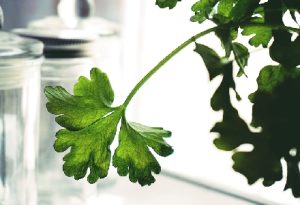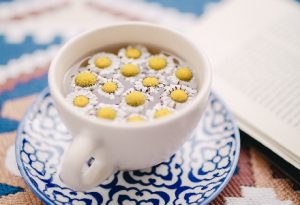Unfortunately, even today, when we hear the term medicinal herbs, many of us still think of cinnamon-sandal-wearing health food shop followers. Unjustly, because medicinal herbalism is almost as old as humanity itself. The effectiveness of many herbs has even been scientifically proven and has very little to do with esotericism. Minor ailments such as mild colds, pain or digestive problems can often be successfully alleviated with their help, without the need for expensive medication. So take a look with us into the natural herbal pharmacy.
Using kitchen spices as healing herbs
If you have an itchy nose or throat, or a slight headache, don’t rush off to the pharmacy. Take a look in your kitchen or garden/balcony first. Perhaps without knowing it, you probably already have a good selection of helpful herbs to choose from there.
For coughs and sore throats:
- Sage: The velvety leaves of the sage plant look decorative and, when prepared correctly, have anti-inflammatory effects, among other things. Ideally, for a fresh sage tea, take 5 leaves per cup and pour hot water over them. Let it steep for about 15 minutes.
- Thyme: The essential oils contained in fresh thyme have a calming effect on the bronchial muscles. To make a tea, use dried thyme (a few sprigs without roots per cup) and hot water. The versatile plant is also very suitable as an infusion for inhalation.
Caution! Asthmatics should avoid inhaling thyme. Babies and small children should also avoid treatment with this herb as it can cause allergic reactions.
For stomach and intestinal complaints:
- Parsley: The green-leafed plant is a popular kitchen spice and gives dishes a distinctive touch of flavour. But not only that: Parsley is rich in the green plant pigment chlorophyll, which supports the detoxification of the liver and kidneys in the human body. So regularly add fresh parsley leaves to your (savoury) dishes. Studies have shown that just 20 g of parsley per week has an anti-inflammatory and antispasmodic effect on stomach and intestinal problems.
- Peppermint and Chamomile: The classics natural remedies. If you feel nauseous, a cup of fresh mint tea is a good choice. Just like dried chamomile flowers, the essential oils have an antispasmodic and digestion-regulating effect after an infusion.
A medicinal herbal treatment for stomach pain?
In cases of acute stomach pain, a special treatment with chamomile tea can help. To do this, pour 2 tablespoons of chamomile flowers into a 1/4 litre of hot water. Let the brew steep for 15 minutes and then strain the flowers. Drink the tea in sips and lie down on your back, stomach, left side and right side alternately for 10 minutes. It is also important that you relax under warm cover during this time.
Of course, the following applies in any case: If symptoms persist or become more severe, please always seek medical attention promptly.
There are countless plant superheroes in nature
Without a doubt, you can also find medicinal herbs outside of your own kitchen and garden. On your next trip through the forest and meadows, take a look at the plants along the way. Plants such as nettles or dandelions are full of healing properties. Nettle leaves brewed into tea have a detoxifying effect, stimulate the metabolism and help with urinary tract diseases. For a change, try fresh dandelion as an ingredient in your salad. The wild herb contains vitamins B2, A and C in large quantities and supports the natural process of digestion and the immune system.
Panasonic wishes you good health and joy in discovering and trying out medicinal herbs.
























